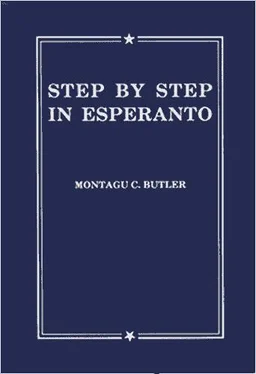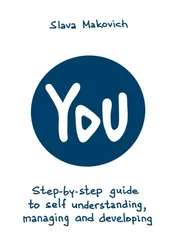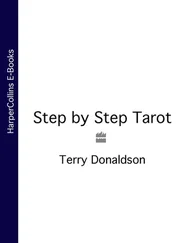139. (a) Repeat 136(ab) in the feminine, thus: aferistino, business-woman; telefonistino, telephone-girl; ĉambristino, chamber-maid; etc.
(b) Repeat eight words from 136with ‑edzino, ‑inedzo, thus: okulistedzino, oculist’s wife; okulistinedzo, lady oculis’s husband.
140. The suffix -ID=
(1) son, child, young (of human beings, or other animals, or even plants). Amikido (= amik-infano), a friend’s child. Fratido = nevo. Hundido, puppy. Arbido, seedling-tree.
(2) Offspring, issue, descendant (in general, irrespective of age, not merely son or daughter). Napoleonido, a descendant of Napoleon. Cp. k id,br eed,Israel ite,Leon id (shooting star radiating from Leo).
141. (a) Use ‑ido and ‑idino after roots in 14 (a) (b), and translate.
(b) Poet’s child, calf, baby-mouse, young-alligator, tiger-cub. The cat mews to the kitten.
(c) Elefant-isto, ‑istino, ‑istinedzo, ‑istido, ‑istidedzino, ‑inisto, ‑idino, ‑idistino, ‑idinisto. Such long compounds are abnormal: they are given merely as an exercise in word-building.
142. Translate the roots anas( duck ), anser( goose ), azen( donkey ), ĉeval, kapr( goat ), lup, pav( peacock ), ran( frog ), ŝaf, vulp( fox ), followed by -o, ‑ino, ‑ido, ‑idino.
143. (a) Viranaso, viransero, virkapro, sinjorido, fiŝidino.
(b) La familio de la kato. La filo de la kato estas la … La edzino … La filino …
144. The sound of AJ( AH ee ) is that of the English word I ( y in my, ai in aisle, ay in Ay, ay, Sir ). We have already met it in the word kaj.Like oj (37), it is a diphthong.
————
fajro, fire; najbaro, neighbour; pajlo, straw; salajro, salary; tajdo, tide; tajloro, tailor .
145. Pronunciation exercise. La tajdoj de la maro. La fumo( smoke ) de la fajro. Ĉu estas fajro en la ĉambro? Kie (estas) fumo, tie fajro. Sur la tegmento estas pajlo. La salajro de la tajpistino. [23]
146. (a) Parto de jaro estas sezono; parto de sezono estas monato; —semajno( week); —tago; — horo; —minuto; —sekundo.( And inversely: Sekundo estas parto de minuto; minuto estas …). Kiom da tagoj estas en unu semajno? semajnoj … monato? monatoj … jaro?
(b) KOMPARU! En lernejo estas instruistoj kaj lernantoj: en kolegio estas profesorojkaj studentoj( undergrads ). Instruistode lernantoj: mastrode servistoj. Homo = human being , viro= man, male ( Homo and persono mean much the same ). Viro kaj virino ambaŭ estas homoj; ankaŭ bebo. Sed hundo estas besto, ne homo.
147. (a) Homo pafas ( shoots ), Dio trafas ( hits the mark ). Homo proponas, Dio disponas. Homo projektas, Dio direktas.
(b) La vesto ne estas la homo. Anĝelo inter homoj, sed satano en la domo! Ne ekzistas naiva( simple, innocent ) vulpo; ne ekzistas homo sen kulpo( fault, guilt ).
148. OCCUPATIONS OF CLASS-MEMBERS. Kiuvi estas? (Bill). Kiovi estas? (… advokato,aŭtoro, doktoro( not necessarily of medicine ), kapitano, komizo( shop assistant ), sekretario,soldato, tramisto…). Kiuestas tiu fraŭlino? Kioŝi estas? (ŝi estas sekretario, tajpist(in)o …). [24]
149. IOM, somewhat, rather . TRE, very . TRO, too (much) .
(a) La omnibuso estas iom tro plena. Ĉu kriketo estas tre interesa ludo? Vere, vi estas tre bona lernanto. Tiu ĉapelo ne estas treeleganta, ĉu? Li estas iom freneza, ĉu ne? Bedaŭrinde, vi estas iom tro juna. Al amiko tro nova ne fidu. Ho, Georgo! La demando estas tro subita( sudden ).
(b) The mountain there is somewhat high. As a matter of fact, that song is not very beautiful. Perhaps the paper is rather too thick. The tea is very good, but possibly a bit too strong. Well, that is very interesting. Of course, the eminent professor is a very wise man. Well, then, he really is a rather important person. I’m-sorry-to-say-that the room is too warm. Everything in the garden is very lovely. Someone, who lives somewhere in Kent — do you remember who and where he is?
(c) Ekzameno.What questions are asked by ĉu?Is Estas vi skolto?a good translation of Are you a scout? When should if be translated by ĉu?when by se?When should too be translated by ankaŭ?when by tro?Name six Esperanto prepositions. How do they differ from English prepositions (96)? What is the difference between lernanto, studento; homo, viro; instruisto, mastro?
150. KUN, with (along-with, together-with, accompanied by) . SEN, without . Ŝi estas kun amikino, She is with a girl-friend . Kun plezuro, with pleasure . Vagonaro sen lokomotivo, a train without an engine.
151. Vivo sen fido, sen espero, kaj sen amo! Ŝuistedzino sen ŝuoj! Belo sen virto estas floro sen odoro. La knaboj sidas kun la knabinoj. Ne ekzistas fumo sen fajro. Vizaĝo sen kulpo, sed koro de vulpo. Sen laboro ne venas oro. Jen la inspektisto,kun valizo en la mano! Vivo sen amo estas dezertosen oazo.Sen ordo en afero, ne ekzistas prospero.
152. (a) Ireland is a country without snakes. The poet is a man with an ideal. He works without a salary. Do you live with them? A servant with two masters, a man … three wives, a dog … four puppies, a cat … nine lives, a woman … ten children. A man without a heart, boot … laces, room … fire, fire … smoke, sea … tides. Stand with him. Sit with us.
(b) Fill up the blanks with (a) kun, and (b) sen. Lakto … kremo. Kafo … lakto. Homo … mono. Kaĝo … birdo. Ĝardeno … floroj. Vilaĝo … lernejo. Glaso … akvo. Pano … butero. Botelo … korko. Libro … bildoj. Muro … fenestro. Papero … makulo.
153. Enigmo. Kie la maro estas sen akvo? (1191).
“En la vagonaro estas du viroj sen bileto( ticket ).” “Ĉu vere? Kie?” “Sur la lokomotivo.”
154. The «kiu» Family (Individuality)
-U(short for Unu) = … one, … individUal (thing or person).
Читать дальше












